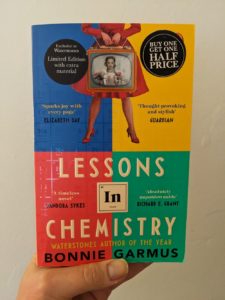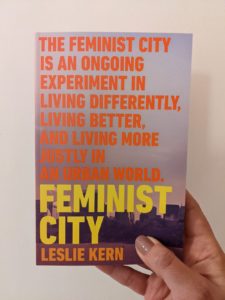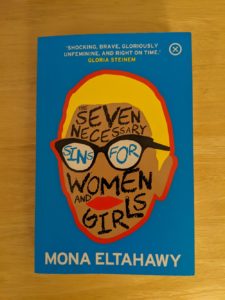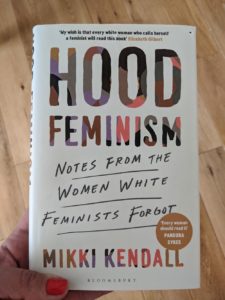I didn’t watch Parks and Recreation when it was first on TV, but I’ve now watched the series through a few times (on my fourth viewing right now – thanks to UK Lockdown 3). Leslie Knope is one of my picks when doing one of those ‘which three TV characters describe you’ Twitter queries (Robin Scherbatsky and Monica Geller are the other two. I mean, I’m not wrong, am I?). One of my favorite parts about Leslie Knope is her love of her girlfriends, as demonstrated in her relationship with her best friend Ann Perkins. Obviously Leslie can be overbearing at times, which she eventually works on, but she clearly loves her friends. She’s a thoughtful gift-giver, and regularly celebrates how awesome her friends are.
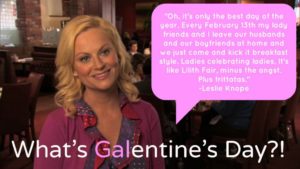
Hence, Galentine’s Day, celebrated on February 13th every year.
I’ve been lucky to have some wonderful friends over the years. I’ve not been one to have a giant friend group of my own – I do best one on one, or in a very small group. I’ve had lots of great chats of hot chocolate and brunch (though lately those chats have been via WhatsApp and Zoom). This year, I decided to spend some time really thinking about how amazing all my Gals are.
There’s a Gal I’ve known since 1st grade, who spent many summers with me and my family up at Lake Tahoe. We watched Wayne’s World like every day one summer. We went to the local Mexican restaurant and flirted with the bus boys. We had uncountable slumber parties.
In college I didn’t end up becoming besties with my roommate, although she was lovely. But I did build three close friendships that, nearly a quarter of a century later (um, holy shit) are still going strong, despite the fact that for 11 of those years we’ve lived in separate cities. One Gal and I became friends because our boyfriends were old friends and college roommates. Neither of us are with those boys anymore, but we’re still friends. We participated in the Women’s March together and exchange texts about politics. Another Gal and her husband (an honorary Gal – he served as officiant at my wedding) took me in when I moved back to Seattle after graduate school, letting me live with them rent free for six months while I found a job and then saved up for my own place. But before that, in college, we hung out in her apartment, eating pizza and for some reason playing tag in the living room. She is the kind of thoughtful where she’ll buy Girl Scout cookies and send them halfway around the world to me based off an offhand comment about how I was bummed I couldn’t get them here. She is also the best person to take with you shopping, because she’ll definitely convince you to buy whatever you’re considering.
Another Gal called me just a couple of hours after she had her daughter (she was in Seattle, I in NYC), who is basically my niece. This Gal hosted a bridal shower for me, and was willing to throw me a bachelorette party (though I passed) even though that is not her thing. She lets me stay with her when I’m in town, and for the years I was back in Seattle, she and I had a girls night nearly every week. Sometimes it was Friday nights, when I’d join the family for dinner; sometimes it was mid-week, and we’d go grab a bite and then get ice cream or pie. We talk on the phone every week, and even if I’m a little cranky, that regular check-in brightens things. It’s not the same as a weekly meet-up in person, but it’s good enough for now.
When I went to grad school in New York, I met a Gal, and we were so close. We took trips together, hung out every weekend. Many a Saturday began with either me making my way to her place, or her picking me up, and us grabbing bagels and Diet Cokes and heading out on an adventure. She lived in Queens, and I was in Manhattan, yet even after an evening out in Manhattan I’d still get in a cab and end up back at her place on the couch. I spent a Thanksgiving with her family in Pittsburgh and a week with her parents and now-husband in Italy. She and I got sunburned in Puerto Rico, and had adventures in Barcelona.
In London, I lucked out and made friends with two amazing Gals. They are both from the US, so part of our friendship felt like home. We were in the same program so could study together, commiserate together. One is married with a little one, and we helped celebrate those milestones with her. The other is a rockstar at work, which has been awesome to see. She’s also a fantastic cook. Our WhatsApp chat can be quiet for a week or two, then lights up whenever anything big happens in the US or our own lives. I can’t wait to get together with them again when it’s safe to do so.
And then there’s the Gal I met in residence halls in London, who helped me find my job here, who receives and shares many a bitch session of texts, and has come out to see me and Austin during the lockdowns when we could still meet up with other households. And honorary Gal, who directs me to the best TV and movies. Personally I think he just sticks around because he knows I don’t always finish my lunch, which means he gets the leftovers. Our group text with Austin involves sharing absurd Tweets, knocking our respective governments, and live texting new episodes of Grand Designs. They helped me celebrate my 40th with a virtual tea.
One Gal is the wife of a dear friend, who originally thought I was his intern (we were coworkers at the time; I chose to believe it was down to my youthful good looks and not my immaturity). She’s so fun to text with, and run with! She helped me train for my first half marathon, and helped me get into my love of running, which has been so critical for my mental health. For a couple of years I was also basically the third wheel on Friday nights with her and her husband. Honestly, it’s so fun being good friends with both partners, and when I was single it was really nice to not need a date to hang out with a couple.
Another Gal and I met through our partners, and she had a spare ticket and invited me to see the musical Mama Mia (touring show, not the Meryl Streep movie), where we got to know each other better. Since then, we’ve become good friends, and we go on adventures with our partners. There was the World Cup in Vancouver in 2015, a couple of trips to New Orleans and a couple of trips to Vegas, then two summers ago we spent a load of time together traveling to the World Cup in France. They stayed with us in London, we had fun, and she was so thoughtful when I had the cough that never ended, stopping into a tiny French chemist to try to find something to help. Now she’s in Ireland, and I’m so excited for a trip to visit her.
Two Gals are married to each other, and used to be our regular double date to watch the Reign play in Seattle. I worked with one, and she made the workday so much better. We were lucky enough to also spend time with them in France for the World Cup, and I treasure those memories, especially as its unclear when we’ll get together again.
And another Gal – she is married to someone Austin went to college with. We text every few days, and even manage to talk on the phone on occasion. When we first moved out here, my partner flew her out to visit so I would have a familiar face to spend some time with, which was amazing. She keeps me honest to my values, and is a good sounding board for when I’m not entirely sure the best course of action on some things.
There are other Gals who have been in my life in the past, but for whatever reason are no longer around. We may have lost touch, or just moved in different directions. But I feel lucky for having known them, as they were amazing friends while we were in touch. And obviously this isn’t an exhaustive accounting of all the awesome women I’ve known, who have made a difference, and continue to make a difference in my life.
This Galentine’s Day, take a moment to reach out to your girlfriends and let them know how much they mean to you.
